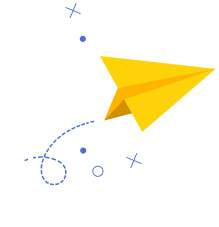News
5 April 2024
PWD Pioneers in Artificial Intelligence
An extremely innovative project, even by global standards, was launched by the non-profit organization Science for You – SciFY in collaboration with the Child and Adolescent Center and other PWD support organizations.
With the project “PWD Pioneers in Artificial Intelligence”, we will train disabled people so that they can work “training” Artificial Intelligence systems. Afterward, the PWDs will undertake to implement a project in real conditions in collaboration with NCSR “Demokritos”. Thus, for the first time, a very innovative way of employing people with disabilities in a rapidly developing field will be studied.
The “PWD Pioneers in Artificial Intelligence” program is implemented with the support of the Ioannis S. Latsis Foundation and the MYTILINEOS Company.
Connecting two worlds
“At SciFY we have trained thousands of people in Artificial Intelligence and helped many organizations to use it in their daily practice. At the same time, for years, we have been working with disability support organizations, creating and offering free applications that make the lives of people with disabilities better”, describes Mr. Vassilis Giannakopoulos, Chief Marketing Officer of Science For You (SciFY). . “So we decided to connect these two areas: to investigate the conditions under which people with disabilities can work in new fields that are opening up thanks to the explosive development of Artificial Intelligence. It is a very innovative project that has a lot to teach us. For example, it may turn out that characteristics of people with autism not only are not weaknesses, but they are their strengths for tasks such as training Artificial Intelligence systems”,concludes Mr. Giannakopoulos.
The need to develop professional skills in PWDs
“At the Child and Adolescent Center, we have been supporting people with autism for many years. So, we know very well that the employment inclusion of people with disabilities is an intractable problem worldwide. People with disabilities face disproportionately high rates of unemployment and poverty. The average number of PWDs who find it difficult to cover their usual necessary expenses is very high, especially in Greece. The difficulty experienced by Persons with Disabilities in finding and maintaining work varies according to the type of disability. The situation is even more difficult for people with mental illness or mental retardation”, says Dr. Giorgos Iatrou, Mental Health Consultant and scientific coordinator of the autismap.gr platform of the Child and Adolescent Center, and goes on to say that “education and training can cultivate new skills or strengthen existing ones, opening up new opportunities for finding work and improving the quality of life, both financially and psychologically”.
What work can disabled people do in Artificial Intelligence?
A key step in the development of most AI systems is their training. One of the most important and frequent ways of training these systems is supervised learning. In supervised learning, a human helps a system “learn” how to handle/categorize data in the desired way. This task, which is called annotation, requires us to characterize the data, that is, to put a “label” on it (for example, “this is an orange” while “that is an apple”). There is a great and growing need for people to annotate.
There are types of annotation that are ideal work for some forms of disability (eg. autism), where careful, repetitive, and solitary work is required. Of course, the education of people with disabilities presents important particularities that must be taken into account. At the same time, the preparation of the prospective employer is equally important.
The project at a glance
- Professionals from PWD support organizations will be trained in Artificial Intelligence. [Child and Adolescent Center, Early Intervention, Panhellenic Association for Psychosocial Rehabilitation and Work Intergration (PEPSAEE)]
- Professionals will train selected PWDs in annotation for 3 months.
- The trained annotators who can respond to the needs of such a project will implement it with real data from NCSR “Demokritos”.
- This pilot action will be analyzed to shape the terms and conditions to grow the project in an effective way.
- Their employment prospects in AI projects will be explored based on the knowledge and experience gained.



